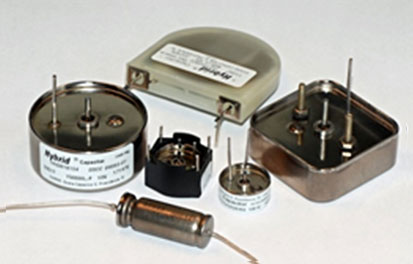The Tantalum Authority: Why Admat Became Known As the Tantalum Experts
Admat Inc. is a company that specializes in the sourcing, processing, fabrication, and supply of refractory metals, including tantalum. Some factors that contribute to their expertise in the tantalum industry include:
- Experience: Admat Inc. has been in the business of supplying refractory metals for over 25 years and has developed extensive experience in working with tantalum and other similar materials. Over the years, they have developed relationships with various suppliers and customers, and have accumulated knowledge and expertise on the processing, handling, and supply of tantalum.
- Technical expertise: Admat Inc. has a team of highly skilled professionals who are experts in the field of refractory metals. They possess technical knowledge and expertise in areas such as
 metallurgy, engineering, and materials science, which allows them to provide technical support and guidance to their customers on the use and handling of tantalum.
metallurgy, engineering, and materials science, which allows them to provide technical support and guidance to their customers on the use and handling of tantalum. - Quality assurance: Admat Inc. has a strong commitment to quality and maintains a strict quality control system to ensure that their products meet the highest standards. They work closely with suppliers to ensure that the tantalum they supply is of the highest quality and meets the required specifications.
- Range of products: Admat Inc. offers a wide range of tantalum products, including sheets, rods, wires, and tubes, which allows them to serve a diverse range of customers and applications. They also offer custom fabrication services, which enables them to provide tailored solutions to meet specific customer requirements.
- Ethical and sustainable sourcing: Admat Inc. is committed to ethical and sustainable sourcing of tantalum and other metals. They work with suppliers who follow responsible mining practices and support efforts to eliminate conflict minerals and promote human rights.
- Customer service: Admat Inc. is known for its “in-house “customer service and responsiveness. They have a team of sales and technical professionals who are dedicated to providing personalized support and assistance to their customers, from initial inquiry to after-sales support.
- Manufacturing capabilities: Admat Inc. has a range of manufacturing capabilities that allow them to process and fabricate tantalum and other metals according to customer specifications. This includes precision cutting, forming, welding, and other custom fabrication services both at their material factories and using third party machine and fabrication centers who are extensively experienced with tantalum.
- Industry partnerships: Admat Inc. has established partnerships and collaborations with other companies and organizations in the tantalum industry. These collaborations allow them to stay up-to-date with the latest industry developments and technologies, and to share knowledge and expertise with other experts in the field.
These are just a few examples of why Admat Inc. is recognized as an expert in the tantalum industry. Their reputation is based on a combination of experience, technical knowledge, quality assurance, customer service, and a commitment to ethical and sustainable practices.
Why Tantalum Capacitors Are Essential in Modern Electronics
Tantalum capacitors were first invented in the early 20th century by a Polish engineer named Wawrzyniec Lewicki. He discovered that tantalum oxide was an excellent dielectric material, meaning it could hold an electric charge without conducting electricity. This property made it possible to create tantalum capacitors, which were significantly smaller and more reliable than existing capacitors at the time.
The first type of tantalum capacitor to be developed was the solid tantalum capacitor, which became widely used in the electronics industry in the 1950s. These capacitors are constructed with tantalum powder, which is pressed into a pellet shape and coated with a thin layer of tantalum oxide. The pellet is then mounted on a lead frame and encapsulated in an epoxy resin. Solid tantalum capacitors are known for their small size, high capacitance, and stability at high temperatures, making them ideal for use in portable electronic devices such as smartphones, laptops, and digital cameras.
Another type of tantalum capacitor is the wet tantalum capacitor, which was developed in the 1950s for use in military and aerospace applications. Wet tantalum capacitors are constructed with a tantalum metal case, which is filled with a conductive electrolyte and a tantalum powder anode. The electrolyte is typically a solution of sulfuric acid and phosphoric acid, which provides high conductivity and low impedance. The tantalum powder anode is covered with a thin layer of tantalum pentoxide, which acts as a dielectric layer. The construction of wet tantalum capacitors makes them ideal for use in harsh environmental conditions, where their high reliability and long-life span are critical. Wet tantalum capacitors are used in a wide range of applications, including avionics, defense, and oil drilling equipment.
 In addition to solid and wet tantalum capacitors, there is another type of tantalum capacitor called tantalum hybrid capacitors. Tantalum hybrid capacitors combinethe best features of tantalum and electrolytic capacitors to create a high-performance capacitor with low ESR (Equivalent Series Resistance) and high capacitance.
In addition to solid and wet tantalum capacitors, there is another type of tantalum capacitor called tantalum hybrid capacitors. Tantalum hybrid capacitors combinethe best features of tantalum and electrolytic capacitors to create a high-performance capacitor with low ESR (Equivalent Series Resistance) and high capacitance.
Tantalum hybrid capacitors are constructed with a tantalum powder anode and an aluminum electrolytic cathode, separated by a paper or polymer dielectric layer. The combination of tantalum and electrolytic materials allows tantalum hybrid capacitors to achieve high capacitance and low ESR, making them ideal for use in power supplies, motor drives, and other high-frequency applications.
Tantalum hybrid capacitors are also known for their high ripple current handling capabilities and their ability to operate at high temperatures. This makes them a popular choice for industrial and automotive applications, where reliability and performance are critical.
In conclusion, tantalum capacitors have become an essential component in many electronic devices, from consumer electronics to aerospace and defense applications. Their small size, high capacitance, and stability at high temperatures and under harsh environmental conditions make them ideal for a wide range of applications. As a supplier of tantalum metal in powder, sheet, and wire forms, Admat is one of the leading providers of high-quality tantalum materials used in the production of tantalum capacitors. Their commitment to quality and innovation has enabled them to supply the electronic industry with the high-grade tantalum materials necessary to meet the growing demand for smaller and more efficient capacitors. With the continued evolution of technology, the role of tantalum capacitors is likely to become even more important in the future.
Slip-Sliding Away: The Top Lubricants for Tantalum Stamping, Drawing, and Machining.
 Lubricants for Stamping, Drawing, and Machining Tantalum:
Lubricants for Stamping, Drawing, and Machining Tantalum:
Tantalum is a dense and hard metal that is used in a variety of applications, including electronic components, medical devices, and aerospace equipment. When stamping, drawing, or machining tantalum, it’s important to use the right lubricant to reduce friction, heat, and tool wear. In this article, we will explore the best lubricants for stamping, drawing, and machining tantalum.
Synthetic Oils
Synthetic oils, such as polyalphaolefins (PAOs) or ester-based lubricants, are commonly used in stamping, drawing, and machining operations due to their high lubricity and thermal stability. These lubricants are formulated to provide long-lasting lubrication and protection against wear and tear, making them ideal for use in demanding applications.
Water-Soluble Coolants
Water-soluble coolants, such as emulsions or soluble oils, can be used to provide cooling and lubrication during stamping, drawing, and machining operations. They are typically used when high speeds or fine surface finishes are required. Water-soluble coolants are easy to apply and are known for their ability to maintain their lubricating properties even under high-temperature and high-pressure conditions.
Pastes
Pastes and gels, such as graphite or molybdenum disulfide-based products, can be used for stamping, drawing, and machining operations where a high degree of lubrication is required. These lubricants are typically applied as a thick paste or gel, which provides a long-lasting and effective barrier against friction and wear.
Greases
Greases, such as lithium or sodium-based products, can be used in stamping, drawing, and machining operations where a low-viscosity lubricant is required. Greases are easy to apply and can provide long-lasting lubrication, making them ideal for use in high-speed or high-temperature applications.
Halocarbon Lubricants
Halocarbon lubricants, such as perfluoroether (PFE) or perfluoropolyether (PFPE) lubricants, are among the best lubricants for stamping, drawing, and machining tantalum. These lubricants are known for their high thermal stability, low volatility, and high lubricity, making them well-suited for use in high-temperature and high-pressure environments.
Halocarbon lubricants can maintain their lubricating properties at high temperatures, which makes them ideal for use in stamping, drawing, and machining operations that generate significant heat. Additionally, these lubricants have low volatility, meaning they do not easily evaporate or break down, which can extend the life of the lubricant and reduce the need for frequent reapplication.
However, halocarbon lubricants are typically more expensive than other types of lubricants and may also have a higher environmental impact, as they are not biodegradable and can persist in the environment for long periods of time.
Halocarbon lubricants are the best performing lubricants for stamping, drawing, and machining tantalum, due to their high thermal stability, low volatility, and high lubricity. However, it’s important to consider the specific requirements of your operation and to consult with a lubricant specialist to determine the best lubricant for your specific application. Whether you are using synthetic oils, water-soluble coolants, pastes, greases, or halocarbon lubricants, it’s crucial to use the right lubricant to reduce friction, heat, and tool wear during your stamping, drawing, and machining operations.
“The Future is Bright: The Growing Demand for Tantalum Across Industries”

Tantalum is a metal with properties that make it highly desirable across several industries due to its unique properties and performance advantages. Admat is an ideal partner for supplying tantalum to these industries, offering high-quality products, competitive prices, and exceptional customer service. Regardless of the industry, Admat has the expertise and resources to meet your tantalum needs.
Chemical Processing: Tantalum is utilized in the production of chemicals and catalysts due to its corrosion-resistant nature. The demand for tantalum in this sector is expected to grow as companies adopt new technologies and process advancements.
Semiconductor: Tantalum serves as a gate electrode material in transistors, making it a critical component in the semiconductor industry. The demand for tantalum in this market is driven by the growth of the electronics market.
Capacitor: Tantalum capacitors are widely used in consumer electronics, automotive electronics, and military electronics. The demand for tantalum in the capacitor market is rising due to the demand for high-performance electronic components.
Medical: Tantalum is utilized in dental implants and surgical instruments due to its high strength and durability. The demand for tantalum in the medical industry is increasing as the demand for high-quality medical products and advanced medical treatments rises.
Energy: Tantalum’s ability to resist corrosion in high-temperature environments makes it a valuable component in the energy sector. The demand for tantalum in this market is driven by the increasing demand for renewable energy and advanced materials in energy production and distribution.
Defense: Tantalum’s strength and durability make it suitable for use in high-stress defense applications, such as weapons systems and aircraft components. The demand for tantalum in the defense industry is rising as the demand for advanced materials in defense applications grows.
Additive Manufacturing: Tantalum’s ability to produce high-quality, intricate parts with high accuracy makes it a valuable component in the additive manufacturing sector. The demand for tantalum in this market is driven by the increasing demand for advanced manufacturing technologies.

